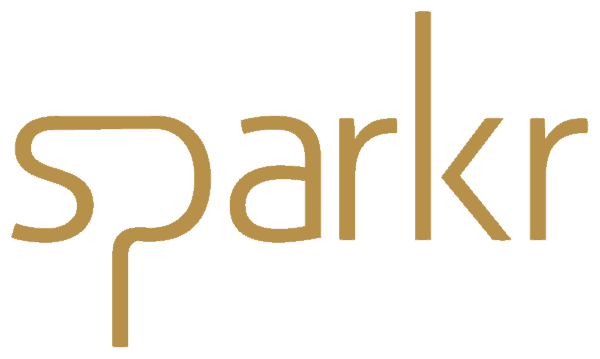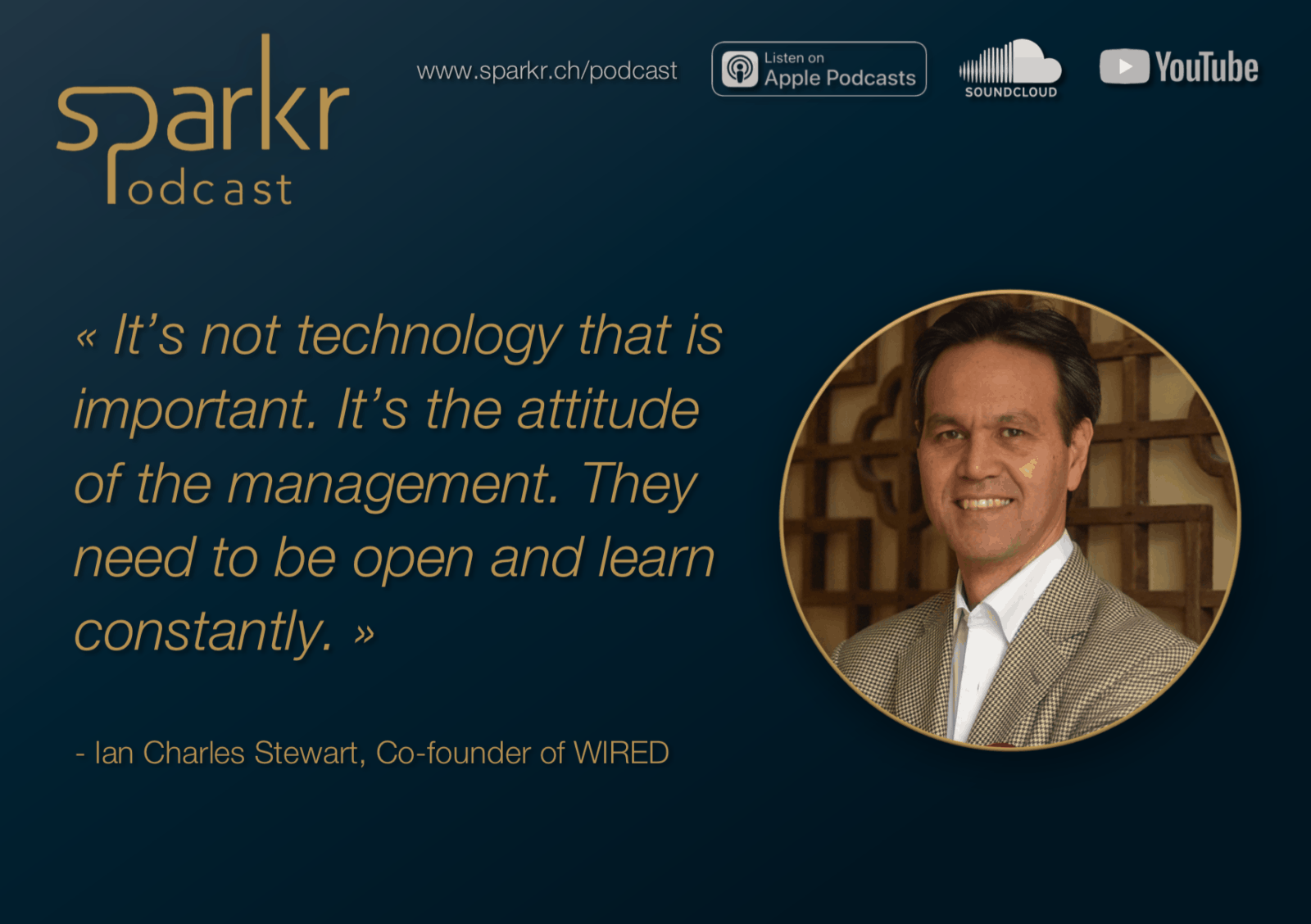For this latest episode of the Sparkr Podcast I sat down with a transformer. Not the Michael Bay, rocket blasting, US flag waving kind of transformer but a man who’s been transforming himself and businesses over the last couple of decades all over the world.
I had the opportunity to spend time with Ian Charles Stewart – serial-entrepreneur, investor, photographer, Olympic athlete, art enthusiast and WIRED co-founder - the leading tech and innovation magazine.
In our conversation we talked about how he’s been learning new skills and approaching new projects, what his decision-making framework looks like and what he learnt about China while living there for ten years. Last but not least we talked about how business is transforming due to technology and what old economy players need to incorporate to make the jump on the new wave of the next digital economy.
Welcoming Change
“Change is good”, says Ian because he believes that “the world is better off when we go forward with change rather than staying in the same place”. Steve Jobs said in his famous commencement speech at Stanford that “death is the best invention of life” because it gets rid of the old and makes place for the new. Very similarly, Ian argues that “if anything stays static for too long, it’s one group of people who get good at it and control it”. With change, new people can come in and challenge the status quo. With change, nobody can have too much power for too long.
The Next Economy
As someone who embraces change and has been at the edge of technological progress - sometimes as observer, sometimes as entrepreneur and investor – Ian knows very well that change is hard. Especially for old, established businesses it is hard to succeed in the next economy. But regardless of how hard transforming a business towards the next economy might be, hoping that change will pass without severe consequences for one’s business is not a strategy.
For the WIRED co-founder the two must-haves for the next economy are “technological fluency” and openness as a core attitude.
You need having technology literate people on all levels of the organization so that the organization can learn on all levels how the markets are changing, what tricks new technologies can pull off – and which not – as well as what kind of business models arise from technological change. Without this literacy and fluency, employees cannot create farsighted proposals and senior management can’t take the right decisions. Therefore, each new hire today should have at least a minimal degree of technological fluency and existing staff should be trained on it.
But more important than technology is the mindset and attitude of the people: Openness as attitude has to be front and center in the next economy. It’s very important because the days are gone when a company can be sure that what they’ve been doing for ten or twenty years will be the product or service they provide in five years. Senior management should demonstrate openness and acknowledge that one cannot know how the business will look like in the near future. Or as Ian puts it: They need to be “open enough, to learn enough”.
Openness is also one of the key ingredients of the professional and very successful creative Chacho Puebla, Chief Creative Director at LOLA MullenLoewe. Check out the Sparkr Podcast with Chacho to learn how to hire, build and enable truly creative teams.
Keep Learning – But How?
Everybody has different styles of learning – some learn with theory first, others learn by doing. Whatever the personal preference is, one principle is crucial to understand: When something is rapidly changing – like many things today – traditional schools or universities are not the best place to learn simply because their curricula take too long to adjust and can’t keep up with the rate of change. Plus, if a new thing is not yet understood, no processes are established, what could there be to teach in a traditional school setting? Only when things have stabilized and passed the stress test of time, schools and universities can offer the right learning experience.
For this reason, WIRED co-founder Ian is convinced that in the next economy “learning by doing is the best way”. And for the same reason, the entrepreneurial spirit that one could define as the spirit that tackles ever new problems can’t be taught in school while some more constant aspects within entrepreneurship like financing, deal structuring or legal topics can be taught.
Projects Are Learning Opportunities
The extent of the learning opportunity is also one of the main factors how Ian decides how to invest his time and energy. Ian chooses among the abundance of projects based on the people he’d be working with and what he can learn from them and from the project. If you have to spend lots of time working on hard problems, “it’s better to do it with people you like on a topic you like”, says Ian. That makes it much easier and in turn you are better at it than others and have higher chances of success. That’s how he became an Olympic athlete, a published photographer, serial-entrepreneur and WIRED co-founder.
These and many more insights are part of our conversation that you can listen to in full with episode #9 of the Sparkr Podcast on Soundcloud or Apple Podcast.
More Episodes of the Sparkr Podcast
You find all the Sparkr Podcast Episodes here and you can subscribe to the podcast on Apple Podcast, Spotify, Soundcloud or wherever you listen to your favorite shows.
#23 Wolfgang Beltracchi über Kunst, NFTs und einen 450 Millionen Dollar Fake (German)
#22 Batterien - Schlüsseltechnologie für die Nachhaltigkeitsrevolution (German)
#21 Frugal Innovation - a powerful mindset for a better economy (English)
#20 Innovation in der Verwaltung - Hinter den Kulissen des Corona Rettungsprogramms (German)
#18 Self-management methods and productivity tips for less stress (English)
#17 Sustainability - Insights from a fascinating researcher and social entrepreneur (English)
#15 Resilienz und Widerstandskraft stärken mit Erkenntnissen aus der Stressforschung (text: English, audio: German)
#14 The Future of Work and Open Innovation - a Conversation with Stanford Professor Pamela Hinds (English)
#12 Künstliche Intelligenz und die Folgen für Mensch, Gesellschaft und Wirtschaft mit Thomas Ramge (text: English, audio: German)
#11 Jean-Claude Biver über wahren Erfolg, echten Luxus und was wir von Hippies lernen können (German)
#10 Executive Briefing on 5G (English)
#3 Lukas Peter from Swisscom about what (Swiss) SME can learn from Silicon Valley (text: English, audio: German)
#2 Timo Pelz from Facebook about the importance of corporate culture (English)
#1 Ottmar Hitzfeld about leadership (German)




9 Gedanken zu “The Transformer: WIRED Co-Founder And Lifelong Learner Ian Charles Stewart (Sparkr Podcast #9)”
Die Kommentare sind geschlossen.